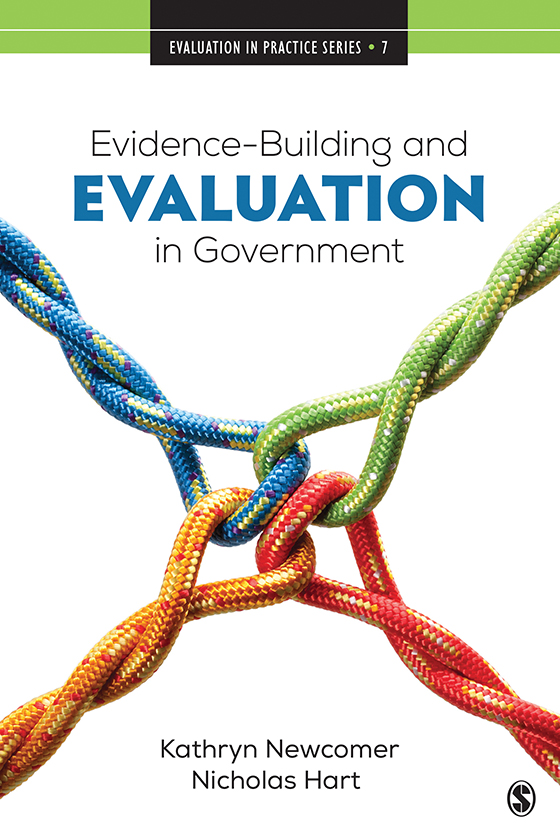Evidence-Building and Evaluation in Government
Kathryn Newcomer - George Washington University, USA
Nicholas Hart - Data Foundation, USA
168 pages
| November, 2021
| SAGE Publications, Inc
Instant Access!
eBook
ISBN: 9781071808757
Paperback
ISBN: 9781071808726
$40.00
Instant Access!
eBook
ISBN: 9781071808757
Public managers, contractors, and grantees conducting evaluations for government operate in complex environment where policymakers and commissioners of evaluation expect different types of “evidence” and simultaneously employ different criteria in judging the quality of that evidence. This text provides a road map for evaluators doing business within or for government, and public managers who are expected to assess and use evidence generated by a large variety of evaluation approaches. The book provides checklists and how-to guidance to help students and other readers develop skills in important activities such as: assessing the quality of evidence claims; developing theories of change to guide the design and evaluation of programs and policies; developing learning agendas to bridge the gap between evidence producers and potential evidence users; and increasing the support of public leaders and executives in the generation and use of evidence to inform their decision-making. The authors include end-of-chapter exercises for readers to test their ability to apply the skills described.
Available formats
ISBN: 9781071808757
eBook
Suggested Retail Price: $18.00
Bookstore Price: $14.40
ISBN: 9781071808757
eBook
Suggested Retail Price: $20.00
Bookstore Price: $16.00
ISBN: 9781071808757
eBook
Suggested Retail Price: $23.00
Bookstore Price: $18.40
ISBN: 9781071808757
eBook
Suggested Retail Price: $33.00
Bookstore Price: $26.40
ISBN: 9781071808726
Paperback
Suggested Retail Price: $40.00
Bookstore Price: $32.00
See what’s new to this edition by selecting the Features tab on this page. Should you need additional information or have questions regarding the HEOA information provided for this title, including what is new to this edition, please email sageheoa@sagepub.com. Please include your name, contact information, and the name of the title for which you would like more information. For information on the HEOA, please go to http://ed.gov/policy/highered/leg/hea08/index.html.
For assistance with your order: Please email us at textsales@sagepub.com or connect with your SAGE representative.
SAGE
2455 Teller Road
Thousand Oaks, CA 91320
www.sagepub.com
Chapter 1 The Evidence-Building Mandate
Chapter 2 Assessing the Quality of Evidence
Chapter 3. Employing Evaluative Thinking
Chapter 4. Developing Learning Agendas for Public Organizations
Chapter 5. Building Capacity to Generate and Supply Evidence
Chapter 6. Building Capacity to Use Evidence
Chapter 7 Sustaining Momentum for Evidence-Building Capacity in Government
- Provides checklists and how-to guidance to help students and other readers develop skills in such important activities as: assessing the quality of evidence claims; developing theories of change to guide the design and evaluation of programs and policies; developing learning agendas to bridge the gap between evidence producers and potential evidence users; and increasing the support of public leaders and executives in the generation and use of evidence to inform their decision-making.
- Includes end-of-chapter exercises for readers to test their ability to apply the skills described.

